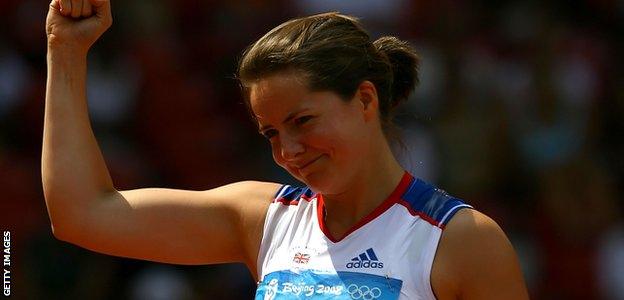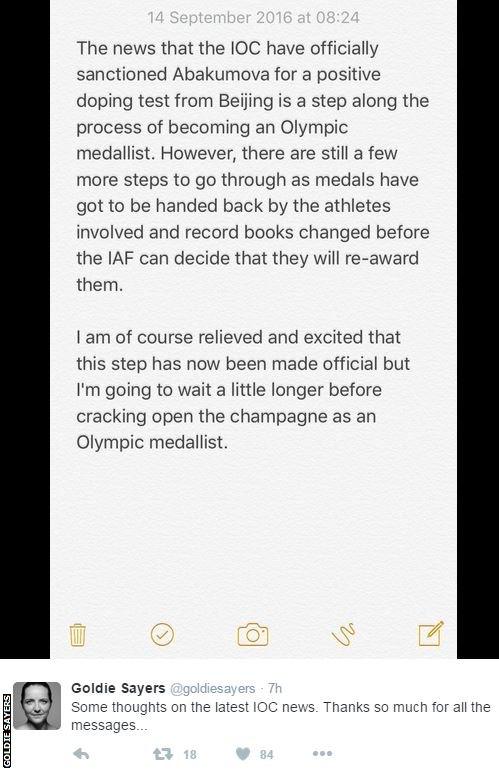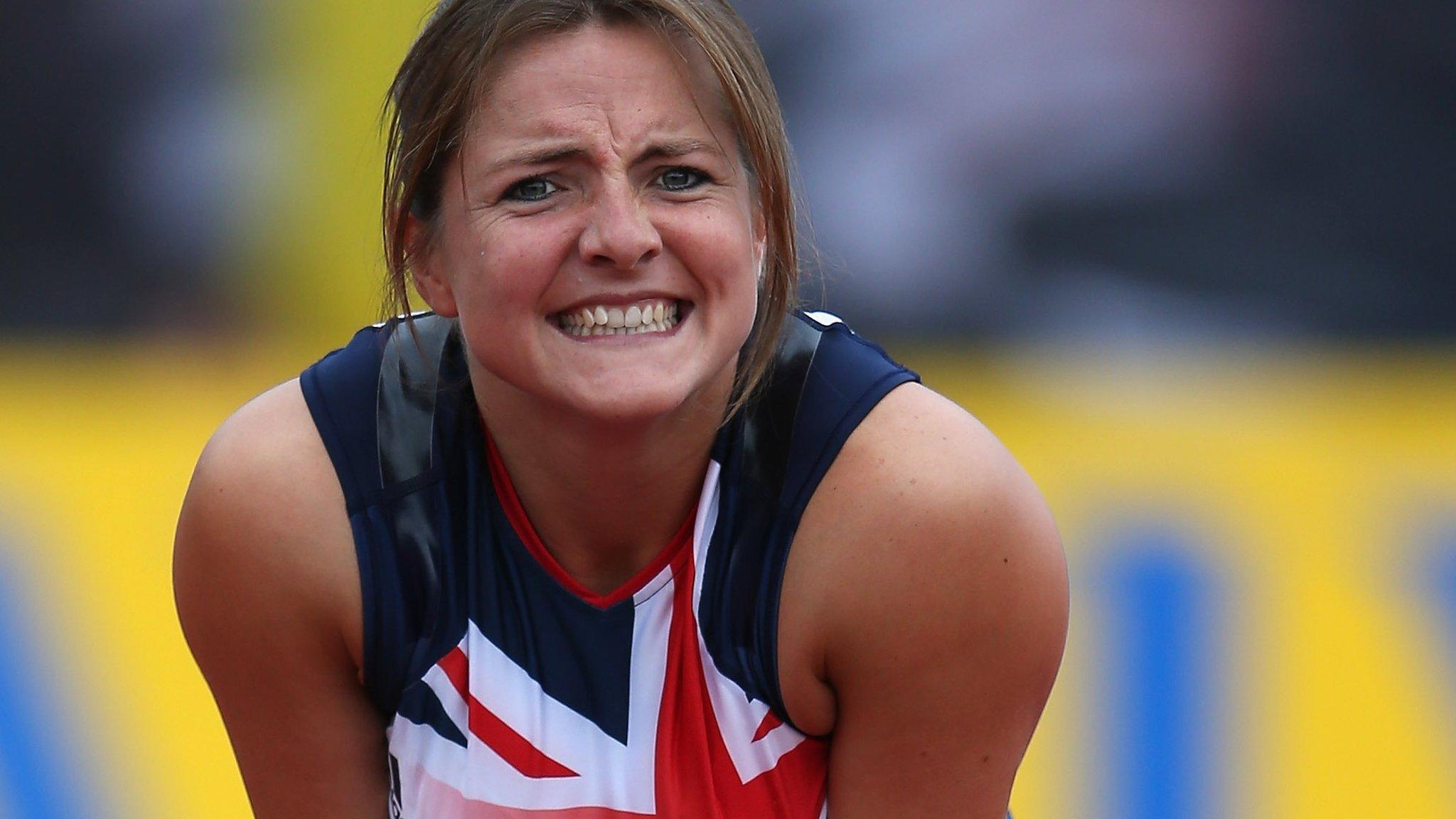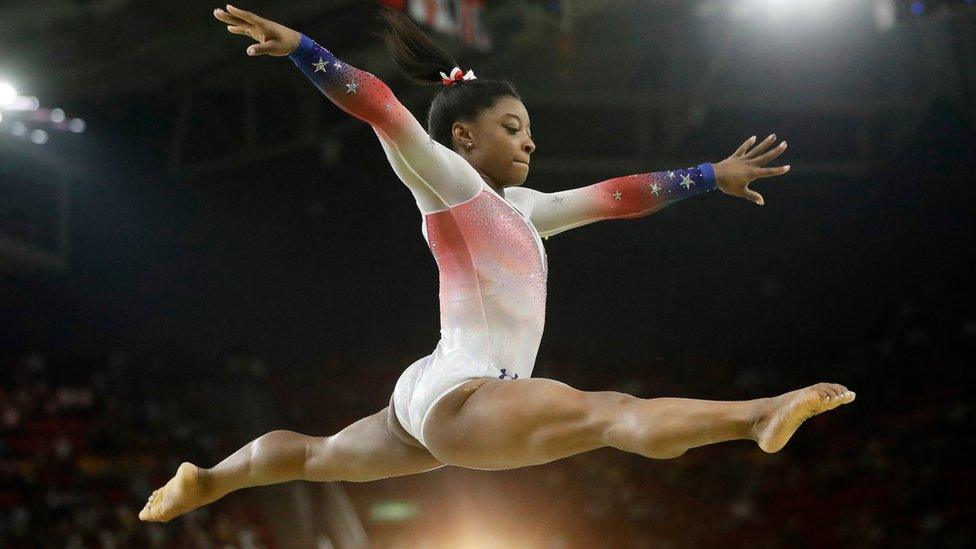How do you celebrate an overdue Olympic medal?
- Published
Rooney hopes to get 2008 medal at Olympic stadium
It is hard to imagine the turmoil an athlete goes through upon hearing they should have been awarded an Olympic medal eight years ago.
Anger? Elation? Frustration?
Or perhaps this response: "It's eight years late, but I'll take it."
That was how Great Britain's Martyn Rooney reacted when it was confirmed he will become an Olympic bronze medallist, eight years late.
At Beijing in 2008, Rooney ran the anchor leg of the men's 4x400m for Great Britain as they finished fourth and missed out on a medal - or so they thought.
Then, in the run-up to this year's Olympics, it emerged that the British team might get a medal after all. The International Olympic Committee used the latest anti-doping technology to reanalyse samples from the Beijing Games.
Among those to test positive for a banned substance was that of Denis Alekseyev, who ran the anchor leg for Russia as they took bronze in Beijing. As a result, Russia have been stripped of their medal.
"I definitely feel that I've been robbed and it's a tough, tough place to be but we are athletes at the end of the day and we're here for medals," said Rooney to BBC Radio 5 live.
Rooney and his 4x400m team-mates are not the only British athletes to receive a belated medal. British record holder Goldie Sayers will also be hoping to collect her bronze from the 2008 Olympics after Russia's Maria Abakumova was disqualified.
Sayers, like Rooney and his colleagues, finished fourth in Beijing, but has been moved up following the decision to strip Abakumova of her silver medal.

British record holder Goldie Sayers finished fourth in Beijing but has said she was always suspicious of silver medallist Maria Abakumova
Many ways to receive a late medal
If he were to have it his way, Rooney, along with team mates Andrew Steele, Robert Tobin and Michael Bingham, would receive their medals at the World Championships in London in 2017.
"I think it will be incredible to be in the Olympic Stadium with a home crowd," he said. "That would be an incredible occasion for us."
It is not yet clear how they will be presented with their medals, but they will not be the first athletes to be honoured late. With anti-doping technology improving, a number of athletes have been disqualified retrospectively, which means their medals are reallocated.
Those Olympic athletes bumped up to get the medals have gone about receiving them in different ways.
For instance, Australian 50km walker Jared Tallent held his own back garden ceremony, having been confirmed as the 2012 Olympic champion in March after Russia's Sergey Kirdyapkin was stripped of the title for doping.
Jared Tallent holds mock medal ceremony
American shot-putter Adam Nelson, meanwhile, received his gold medal in a food court at Atlanta airport in late 2012.
Nelson was upgraded to Olympic champion eight years after finishing runner-up to Yuriy Bilonoh at Athens in 2004. When Ukrainian Bilonoh's sample was retested in late 2012, it was found to contain traces of a banned steroid.
The American, heading to the airport en route to a work conference, was told to meet an official from the United States Olympic Committee when he got there. It was there that his medal was handed over.
Nelson did get a more appropriate ceremony in 2016 when the United States Track and Field Federation arranged for him to attend the US Olympic Trials, awarded him his medal on the podium, played the national anthem and even organised a fly past by local US military air forces.
So, what's next for Team GB's new medallists?

Sayers suggested on Twitter that she will not get too excited until she has the medal in her hands.
And as the British Olympic Association has suggested, there are still a few hurdles to clear before that happens. "The next step in the process will kick in once the IOC have received the returned medals, diplomas and medallist pins from the athletes who have been disqualified," a spokesperson said.
That medal presentation, wherever it happens, may be a little while yet. But as Rooney said: "It doesn't matter when we get them, as long as we get them."
- Published13 September 2016

- Attribution
- Published13 September 2016
